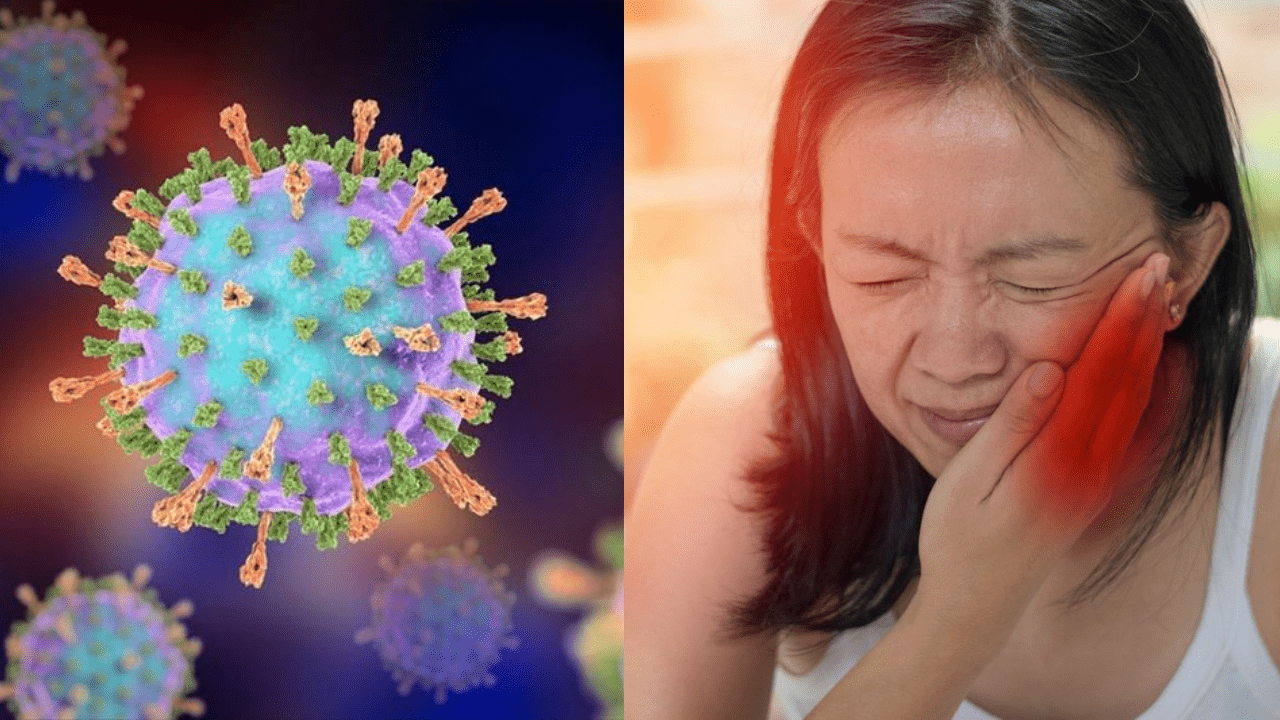Mumps Virus Spreads Rampantly Across Delhi NCR, Children Particularly Vulnerable to Outbreak Surge.

The surge in Mumps cases across various states in India, including the populous region of Delhi NCR, has raised concerns among health authorities. Government data indicates a worrisome projection, with the case count anticipated to reach 15,637 by March 2024. Maharashtra, Andhra Pradesh, Telangana, Tamil Nadu, and Rajasthan emerge as hotspots for mumps, amplifying the urgency for effective preventive measures.
Mumps, a highly contagious viral infection, targets the salivary glands, particularly the parotid glands beneath the ears. The transmission occurs through respiratory droplets, often during the coughing or sneezing of infected individuals. Complications like swelling of sexual organs, meningitis, and even deafness can arise from this infection, making it crucial to recognize and prevent.
Mumps Virus Symptoms
Symptoms typically manifest around 16 to 18 days post-exposure, though the incubation period can stretch up to 25 days. Initially, patients may exhibit nonspecific signs such as fever, headache, fatigue, and diminished appetite. Swelling of the salivary glands near the jaw follows shortly, distinguishing mumps with characteristic oral swelling. Some cases may present with mild or no symptoms, posing challenges in diagnosis. Timely identification and isolation are pivotal to curb further transmission.
Urgent Alert: Mumps Virus in Delhi NCR Spreads like Wildfire, Children at High Risk Amid Rapid Outbreak
Mumps demands vigilance due to its high contagiousness. The virus spreads through respiratory droplets, even before symptoms surface, heightening the risk of transmission. Close contact or sharing contaminated surfaces exacerbates this risk. Hence, meticulous preventive measures are imperative.
Preventing mumps entails adhering to vaccination schedules for both children and adults. Embracing good hygiene practices, like regular handwashing with soap and water, significantly reduces the risk of infection. Additionally, maintaining distance from infected individuals and practicing respiratory etiquette—covering mouth and nose while coughing or sneezing—play pivotal roles in containment efforts. Early symptom recognition, coupled with prompt isolation, forms a crucial part of preventive strategies, curtailing further spread.
Heightened vigilance is warranted in regions experiencing a surge in mumps cases. Delays in diagnosis or lax adherence to preventive measures can exacerbate outbreaks, leading to severe health consequences and burdening healthcare systems. Through collective efforts, including robust vaccination campaigns, public awareness initiatives, and strict adherence to preventive guidelines, communities can effectively combat the spread of mumps and safeguard public health.
As mumps cases surge across several Indian states, including Maharashtra, Andhra Pradesh, Telangana, Tamil Nadu, Rajasthan, and Delhi NCR, heightened awareness and stringent adherence to preventive measures are imperative to stem the tide of this contagious viral infection.
Also Read:

The Psychology of Love: Why Valentines Day Matters More Epic Than You Think
Discover the psychology of love and why Valentines Day is more important than you think. Learn how love impacts the brain, strengthens relationships, and boosts

Premier League Highlights: Arsenal Humiliate Man City 5-1, Spurs and Palace Secure Crucial Wins
Arsenal demolished Manchester City 5-1 in a statement premier league highlights win, reigniting their title hopes. Meanwhile, Crystal Palace stunned Man United 2-0, and Tottenham

How Budget 2025 Impacts the Indian Middle-Class: Major Tax Benefits and Glaring Omissions
Budget 2025 offers major tax relief to the middle class, including zero tax on incomes up to ₹12 lakh. However, it misses out on incentives

Degrees vs Employability: Why “Highly Qualified Degree Holders” Struggle to Find Jobs While “Less Qualified Individuals” Get Hired Faster!
Many highly qualified individuals struggle to secure jobs, while less qualified candidates get hired quickly. This Degrees vs Employability paradox is caused by employer preferences,

The Power of Mindset: Why Looking Poor Doesn’t Make You Poor, but Thinking Poor Does!
Discover why looking poor doesn’t define your wealth but thinking poor does. Learn the power of mindset and how a growth-oriented mindset can lead to

Overthinking: How It’s Damaging Today’s Youth – Causes and Cure in 2025
Understanding how overthinking is silently damaging today’s youth, from its causes rooted in societal pressure and social media to its long-term effects on mental health.
